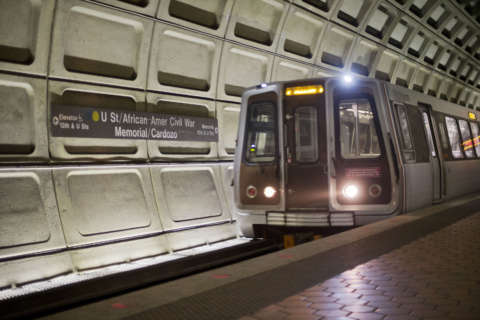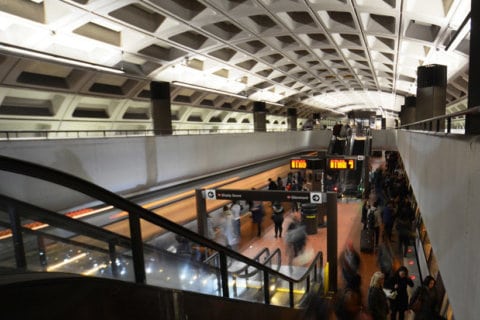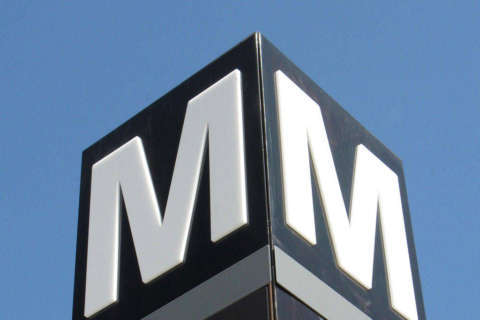Metro could raise fares or make other changes next year, a prospect that is drawing pushback from the Metro Board’s Riders’ Advisory Council.
“The Riders’ Advisory Council can’t endorse a fare increase for the coming year,” Virginia Co-Chair Andrew Kierig told the Metro Board Thursday.
The council had a budget briefing and discussion earlier this month, and urged the board to think more creatively about fare changes that could get riders onto the system.
“Everything’s on the table, but I think we’re really waiting to see until the general manager proposes a budget, which is coming up soon,” Metro Board Chairman Paul Smedberg said after the meeting.
It’s been three years since Metro last raised fares.
Paul Wiedefeld’s budget proposal is expected by November, but he said it was too early to say whether it would include proposed fare increases.
Finance and Capital Committee Chairman Christian Dorsey wants the board to at least consider much broader changes to Metro’s fare system, which is currently based on a minimum flat fare plus distance-based charges. The total is currently capped at $6 at rush hour though, meaning Metro collects less per mile from certain long-distance commuters than those taking the shortest trips.
Any changes would factor in the Silver Line extension into Loudoun County, Virginia, that is expected to open sometime after July 1, which Metro estimates will increase the number of riders who use Metrorail as a suburban commuter rail service.
“We don’t endorse a fare increase, but thinking creatively, raising the cap on distance could be one way of addressing this,” said Kierig, of the Riders’ Advisory Council.
The group opposes bus fare increases of any kind, particularly due to the poor performance of many bus routes.
Speaking to the Metro Board though, Wiedefeld suggested some type of fare increase on bus or rail could be required without another significant financial infusion.
“As we head into the next budget cycle, there is a very limited ability to get any more significant cost savings, without impacting service, which we do not want to do. So we need to put even greater focus on revenue opportunities,” Wiedefeld said.
Metro is in the process of securing a new advertising contract meant to increase revenue, and is still considering selling the naming rights to lines, offices, stations or station entrances.
Ridership remains an issue, with buses stuck in traffic or facing other problems, and rail ridership only slightly rebounding.
“We’ll be coming out with our budget in November, and we’ll see where we are,” Wiedefeld said.
The Riders’ Advisory Council hopes the budget builds on this year’s changes that extended Yellow Line service to Greenbelt and also ended mid-line turnarounds on the Red Line to decrease the number of delays.
Expanded or discounted unlimited-ride passes have also provided opportunities for savings, but Kierig said those passes remain too hard for riders to purchase.







